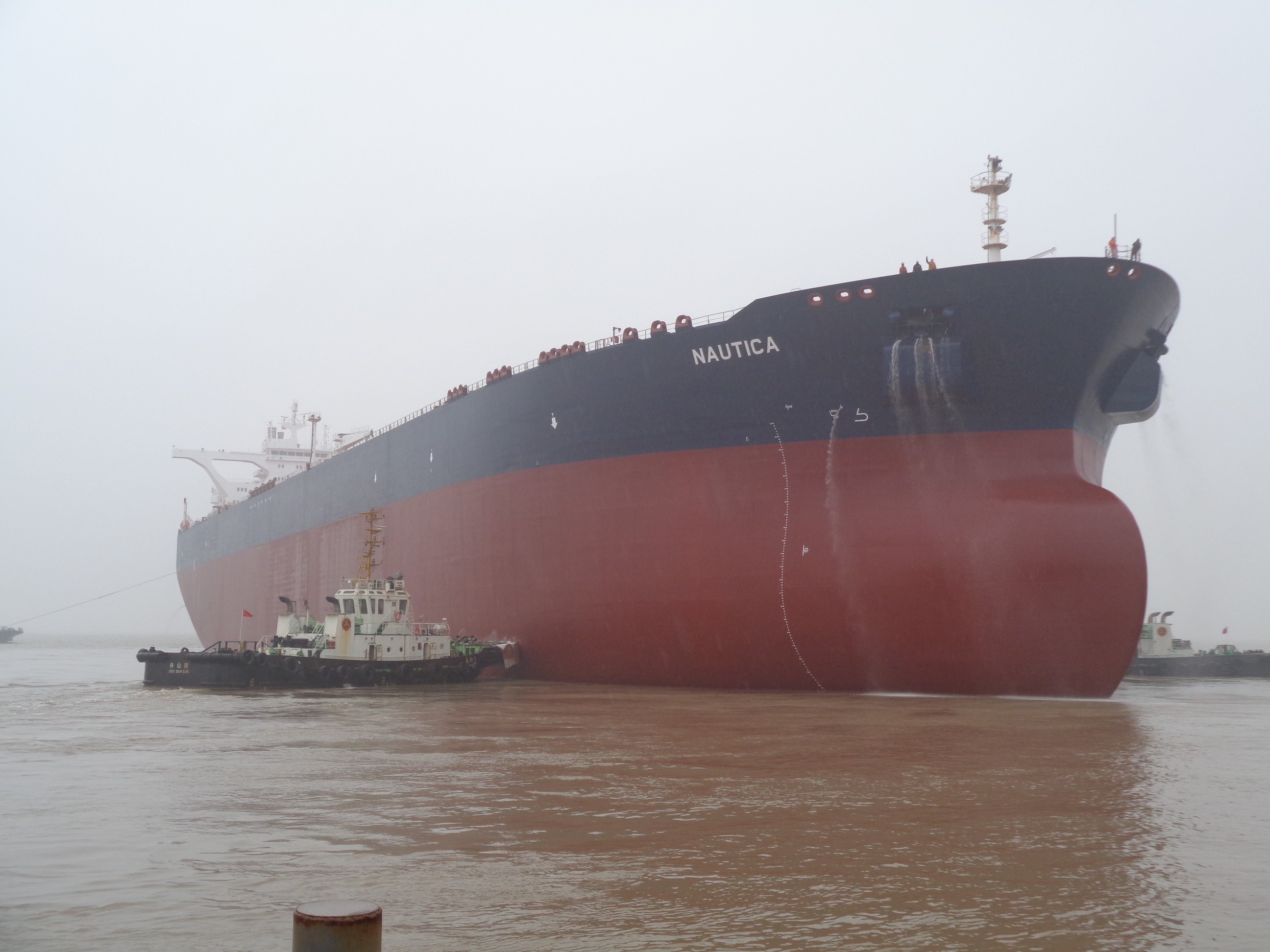Vessel’s departure is a significant development in the operation to remove more than a million barrels of oil from decaying supertanker off Yemen’s Red Sea coast. Funding still urgently needed to execute the safe removal of oil.
Tanker Sets Sail on United Nations Mission to Prevent Catastrophic Oil Spill in Red Sea
April 9, 2023

Secured last month by UNDP, the Nautica was in drydock in Zhoushan for regular maintenance and modifications ahead of it taking on the oil from the FSO Safer. Secured last month by the UN Development Programme (UNDP), the Nautica was in drydock in Zhoushan, China, for regular maintenance and modifications. The vessel is expected to arrive in early May.
Act now to prevent a catastrophic oil spill in the Red Sea: Donate here
New York - A very large crude carrier or VLCC set sail from Zhoushan, China today as part of a United Nations-coordinated operation to remove more than a million barrels of oil from the decaying FSO Safer supertanker off Yemen’s Red Sea coast that threatens a humanitarian, environmental and economic catastrophe.
Secured last month by the UN Development Programme (UNDP), the Nautica was in drydock in Zhoushan, China, for regular maintenance and modifications. The vessel is expected to arrive in early May. The Safer has been moored about nine kilometers off Yemen’s Ras Isa peninsula since 1988 and could explode or break up at any time.
UNDP, which is implementing the operation as part of a UN-coordinated initiative, is contracting the global leading marine salvage company SMIT to ready the Safer and safely carry out the ship-to-ship transfer of the oil.
“The departure of the Nautica, and its onward journey to the Red Sea, is a significant next step in the complex operation to take on the oil from the Safer. This moment marks the culmination of many months of preparation and coordination. It has involved many partners among them our UN sister agencies, a global community of funders – from government and foundations to school classes- as well as international experts to ensure we succeed and prevent a humanitarian, environmental and economic disaster,” said Achim Steiner, UNDP Administrator. “We are in a race against time and I urge leaders in government, CEOs of corporations and any individual in a position to contribute to step forward and support us in keeping this operation, that is fast reaching a critical stage, on track,” he added.
While the project has received significant international support, the spiraling cost for VLCCs, in a market affected by the war in Ukraine, and other factors, means more funding is needed to complete the emergency phase of the plan. As of 4 April, the UN had received firm commitments for $95 million. The total budget for this first phase is $129 million, leaving a gap of $34 million.
“The sailing of the vessel that will take on the Safer’s oil brings us closer to preventing a catastrophe,” said David Gressly, the UN Resident and Humanitarian Coordinator for Yemen, who has led on UN system-wide efforts on the Safer since September 2021. “The UN family, including UNDP, UNEP, IMO, OCHA, WFP, member states, private companies and the public have all played a part in the UN-coordinated plan. We have the best available technical expertise and political support from all sides. Donors have been generous. We just need the final piece of funding this month to ensure success.”
To fill the budget gap, the UN is appealing to Member States and private entities, and the global public through a crowdfunding appeal to which thousands of individuals have already contributed.
To learn more, visit www.un.org/StopRedSeaSpill.
Background for editors
Due to the conflict in Yemen, the FSO Safer has decayed to the point where there is an imminent risk it could explode or break apart, which would have disastrous effects on the region and beyond.
A major spill would devastate fishing communities on Yemen’s Red Sea coast, likely wiping out 200,000 livelihoods instantly. Whole communities would be exposed to life-threatening toxins. Highly polluted air would affect millions. It could close of the ports of Hodeidah and Saleef – which are essential to bring food, fuel and life-saving supplies into Yemen, where 17 million people need food assistance. The closure of desalination plants would cut off a water source for millions of people. Oil from the Safer could reach the African coast and affect any country on the Red Sea. The environmental impact on coral reefs life-supporting mangroves and other marine life would be severe. Fish stocks would take 25 years to recover.
The cost of cleanup alone is estimated at $20 billion. Disruptions to shipping through the Bab al-Mandab strait to the Suez Canal could cost billions more in global trade losses every day, as happened after the Ever Given grounded in the Canal in 2021.
The UN Resident and Humanitarian Coordinator for Yemen, David Gressly, has led UN system-wide efforts to on the FSO Safer since September 2021. UNDP is implementing this complex and high-risk project.
For more information
For the UN Resident and Humanitarian Coordinator for Yemen: geekie@un.org, +1 347 654 0913, +
For the UN Development Programme: dylan.lowthian@undp.org +1 646 673 6350

 Locations
Locations



